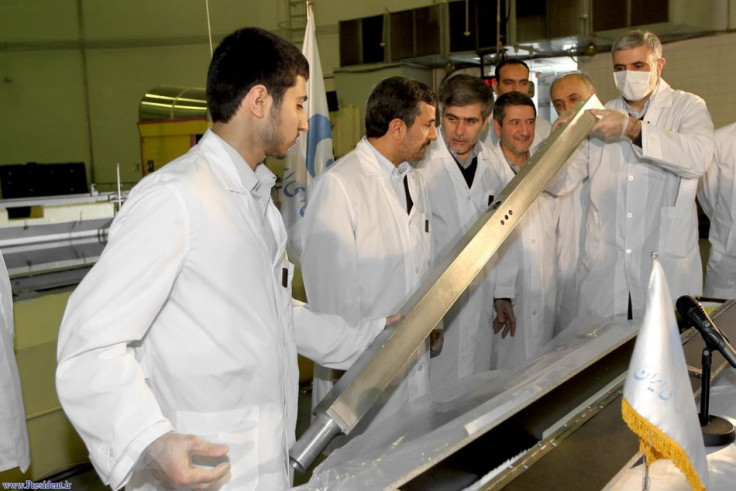Iran's Nuclear Announcement Revealed: Country Announces Fuel Rods for Tehran Reactor

On Saturday, Iranian President Mahmoud Ahmadinejad was quoted by state-run media as saying his country would reveal "several major achievements in the nuclear domain" within the next few days.
The announcement prompted strong reactions from the U.S., European countries and the International Atomic Energy Agency (IAEA), in the wake of ongoing efforts to understand the true extent of Iran's nuclear capabilities and their possible weapons applications.
Now, in a report by the Montreal Gazette, it appears the announcement has been made. The report quotes a senior official (possibly Iran's deputy nuclear negotiator Ali Baqeri) as saying the country will install its first domestically produced nuclear fuel rods into a research reactor on Wednesday. The story has also been reported on by CNN.
"We began enriching uranium to 20 per cent in order to make fuel rods because Western countries are not ready to help us," Baqeri told the Russian news agency in Tehran, adding, "And for the first time, fuel rods produced by Iranian scientists will be installed in the presence of the Islamic Republic's president in Tehran's research reactor on Wednesday."
Incidentally, at the time of Saturday's announcement by President Ahmedinejad, the country's semi-official Mehr News Agency, drawing on what it described as "informed sources," suggested it likely that the President would announce the Fordo enrichment facility as being fully operational.
Meanwhile, in an article published by The New York Times, concerns were raised over Iran's newest uranium enrichment plant known as Fordo. The problem, the article pointed out, was that it was buried deep underground, making it nearly impervious to most forms of scrutiny. Furthermore, the construction of the plant was kept absolutely secret until Western intelligence reports leaked the news in 2009.
The report also said that the Fordo plant took uranium fuel enriched to 4 percent purity by a third plant at Natanz and further enriched it to 20 percent. The concern, however, is that it is much easier to make bombs with 20 percent purity concentration than 4 percent.
Iran's response has been to argue that the 20 percent enriched uranium was necessary for its Tehran reactor to make isotopes for treating cancers.
© Copyright IBTimes 2025. All rights reserved.





















